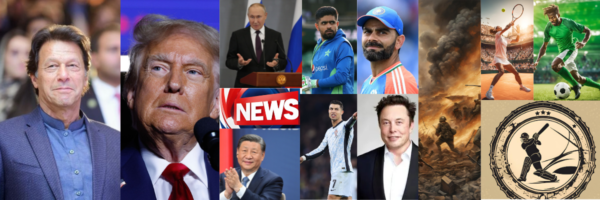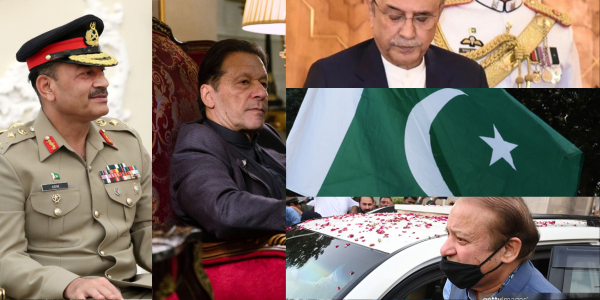The Pakistan Army has historically played a dominant role in the country’s political, economic, and social landscape. The army has a powerful influence within its country, which is not just limited to defense and security but has also spread to politics and economic resources. In this essay, we will discuss how How the Army of Pakistan Manipulates the Country’s Resources and Politicians and what impact it has on the country’s political and economic system.
Economic Control and Resource Manipulation
One of the primary ways the Pakistan Army manipulates the country is through its control over economic resources. The military operates a vast network of businesses under entities like the Fauji Foundation, Army Welfare Trust, and National Logistics Cell. These organizations dominate key sectors, including agriculture, manufacturing, logistics, and real estate. For instance, military-owned housing societies acquire prime land, often at subsidized rates, and develop lucrative real estate projects. These ventures prioritize profit over public welfare, diverting resources from essential areas like education and healthcare.
Additionally, the military’s significant share of the national budget exacerbates resource allocation issues. A substantial portion of Pakistan’s annual budget is dedicated to defense, often at the expense of social development sectors. This prioritization leaves critical areas like public health, infrastructure, and education underfunded, hindering the country’s overall progress. The justification for such high defense spending, even during periods of relative peace, underscores the military’s ability to influence national priorities to suit its institutional interests.
Political Manipulation and Influence
The Pakistan Army’s involvement in politics is a well-documented phenomenon. It has repeatedly intervened in the country’s democratic processes, either through direct military coups or indirect manipulation of civilian governments. Pakistan’s history is marked by several military takeovers, where elected governments were dismissed under the pretext of corruption, incompetence, or national security threats. Even in periods of civilian rule, the military exerts considerable influence over politicians and policy decisions.
One common tactic is the backing of specific political parties or candidates who align with the military’s strategic interests. The creation of political alliances and support for technocratic governments are methods employed to maintain control over the political landscape. Furthermore, the military’s intelligence agencies, particularly the Inter-Services Intelligence (ISI), play a pivotal role in shaping electoral outcomes, ensuring that power remains concentrated within favorable quarters.
Civilian leaders often find themselves constrained by the military’s overarching influence. Politicians who challenge the military’s dominance risk being discredited, sidelined, or even removed through judicial or extra-legal means. This dynamic creates a dependency among politicians on the military for survival, further weakening democratic institutions and governance.
Foreign Policy and National Security Dominance
The Pakistan Army has a near-monopoly over the country’s foreign policy, particularly in matters concerning India, Afghanistan, and the United States. Civilian governments have limited authority in shaping international relations, as the military justifies its control by citing national security concerns. This dominance often results in policies that prioritize strategic objectives over economic or diplomatic benefits.
For example, the military’s support for non-state actors and militant groups as tools of foreign policy has had long-term repercussions for Pakistan’s international standing. While these strategies may align with the military’s immediate goals, they have often led to diplomatic isolation and economic sanctions, further straining the country’s resources. Civilian governments are frequently left to manage the fallout of these policies, highlighting the imbalance in decision-making power.
Media and Narrative Control
The military’s influence extends to the media, where it controls narratives to maintain its image and suppress dissent. Journalists and media outlets critical of the military face harassment, censorship, and even enforced disappearances. Through these tactics, the military ensures that public discourse remains favorable to its interests, silencing voices that challenge its authority.
The control over media narratives also enables the military to manipulate public opinion against civilian governments. By highlighting the flaws and failures of elected leaders while projecting itself as a stabilizing force, the military reinforces its role as an indispensable institution. This undermines the credibility of democratic institutions and perpetuates the cycle of political instability.
Judiciary and Legal System Influence
The judiciary in Pakistan has often been accused of legitimizing military interventions and undermining civilian governments. Through selective use of legal frameworks and pressure on judicial authorities, the military ensures favorable outcomes in politically significant cases. For instance, the dismissal of civilian leaders or the endorsement of military takeovers has frequently been facilitated by judicial rulings.
This dynamic not only erodes public trust in the legal system but also weakens the rule of law. Politicians and civil society actors seeking redress against military overreach often find the judiciary unwilling or unable to provide justice, further entrenching the military’s dominance.
Impact on Governance and Democracy
The military’s manipulation of resources and politicians has profound implications for Pakistan’s governance and democracy. The concentration of power in the hands of the military undermines civilian institutions, leading to weak governance and policy inconsistencies. Frequent interventions disrupt the continuity of democratic processes, preventing the establishment of robust institutions capable of addressing the country’s challenges.
Moreover, the military’s dominance fosters a culture of impunity and lack of accountability. Resources that could be utilized for public welfare are diverted to sustain the military’s extensive economic and political network. This perpetuates poverty, inequality, and underdevelopment, creating a vicious cycle that hinders Pakistan’s progress.
Conclusion
I tried to answer the question How the Army of Pakistan Manipulates the Country’s Resources and Politicians. finally this article represents a significant obstacle to the nation’s democratic and economic development. By prioritizing its institutional interests over national welfare, the military has entrenched itself as a powerful, unaccountable entity. Addressing this imbalance requires strengthening civilian institutions, promoting transparency, and fostering a culture of accountability. Only through genuine democratic reforms and a recalibration of civil-military relations can Pakistan hope to overcome the challenges posed by military overreach and achieve sustainable progress.
Trending articles
Travis Head’s ugli celebration



